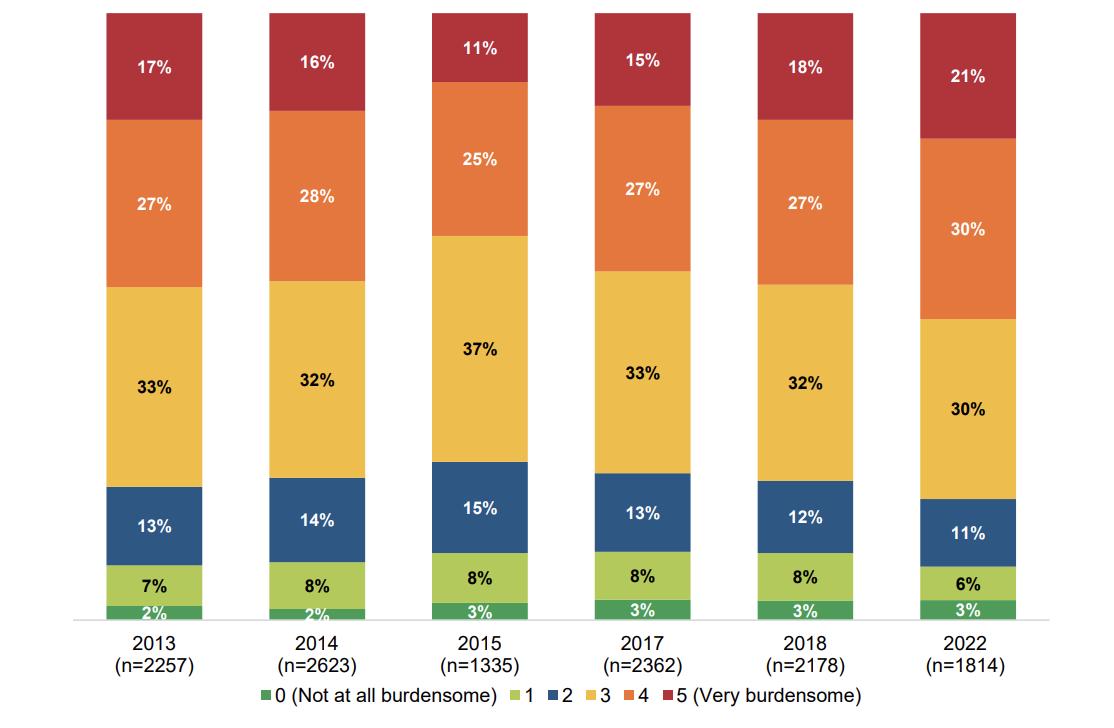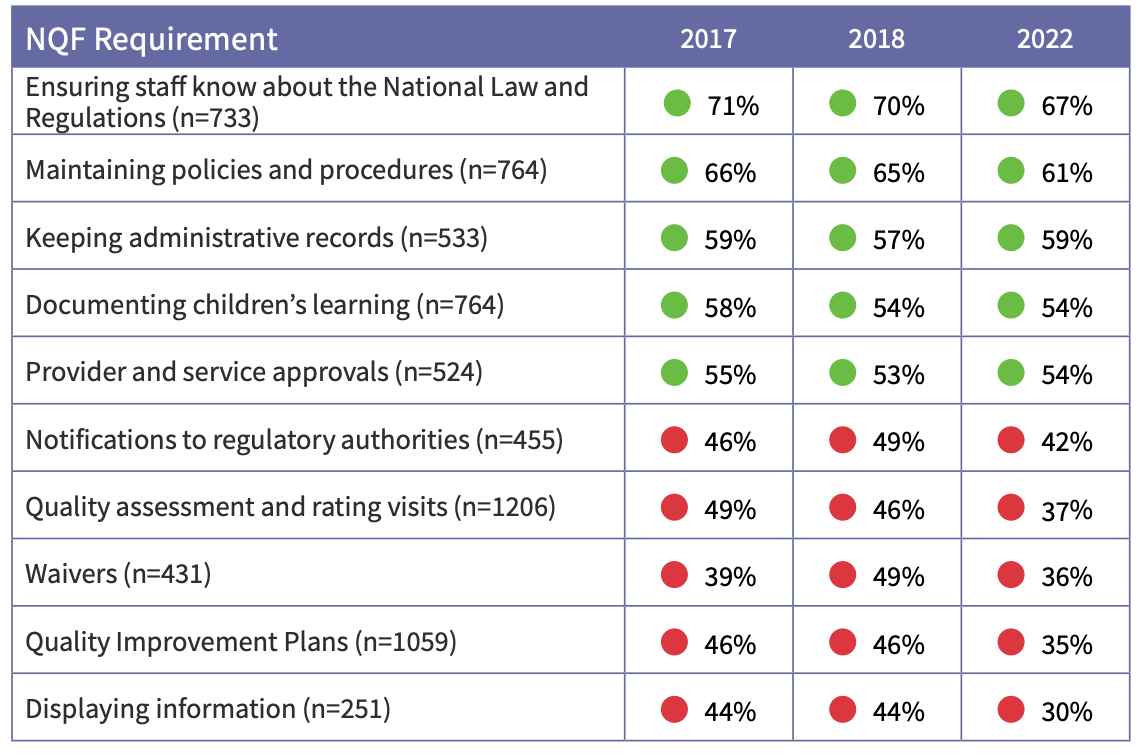Provider
Workforce
Reporting
Administrative burden concerns at record levels according to latest ACECQA “Provider perceptions of NQF survey”

Jason Roberts
Jan 04, 2023
Save
The percentage of early childhood education and care (ECEC) providers that consider the administrative requirements of the National Quality Framework (NQF) to be excessively burdensome has risen to record levels according to the latest Australian Children’s Education and Care Quality Authority (ACECQA) “Provider perceptions of NQF survey.”
Through the survey ACECQA is able to measure the perceptions of providers of education and care services, particularly regarding the administrative requirements of the NQF and in so doing support Government objectives to monitor and ultimately reduce unnecessary burden associated with the NQF.In June 2022, ACECQA invited all approved providers to participate in the sixth survey on this topic.
2,073 approved providers responded, equating to a response rate of 32 per cent. Respondents were broadly representative of provider characteristics, with single service providers moderately under-represented and medium sized providers (those operating 2-24 services) moderately overrepresented.
Overall support for the NQF has remained above 95 per cent across all six surveys conducted since 2013, however there has been a growing proportion of respondents who consider the administrative burdens of the NQF as being increasingly burdensome.

This year’s survey highlighted that 51 per cent of respondents consider the overall administrative burden to be high, 6 percentage points higher than that recorded in the 2018 survey with a record level, 21 per cent currently viewing the NQF as very burdensome.
For the third consecutive survey, overall perceived burden was highest among providers of outside school hours care (54 per cent), closely followed by providers of preschool/kindergarten (53 per cent) and long day care (50 per cent).
Quality assessment and rating visits and QIP’s still considered “highly burdensome”
In the 2022 survey, approved providers were asked about the burden associated with specific requirements of the NQF, with a high perception of burden defined as 4 or 5 on the scale from 0 to 5.
Quality assessment and rating visits continue to be considered highly burdensome. Almost two-thirds (64 per cent of respondents indicated quality assessment and rating visits were highly burdensome, up from 53 per cent in 2018 and just 37 per cent in 2013.
The most common reasons given to justify the responses were:
- frustration or stress (83 per cent),
- diverting attention from other activities (78 per cent) and;
- staff hours/time (73 per cent)
For the third consecutive survey, perceived burden was highest among providers of preschool/ kindergarten (68 per cent), closely followed by long day care (64 per cent) and outside school hours care (63 per cent).
With respect to quality improvement plans 56 per cent of respondents considered them to be highly burdensome, up from 54 per cent last year and 43 per cent in 2013, with respondents citing staff hours/time (87 per cent) and diverting attention from other activities (78 per cent) as the main reasons.
The report notes that “high perception of burden may be partly driven by service providers feeling that they are continually required to prepare, and be prepared, for a quality assessment and rating visit, and a review of their quality improvement plan.”
50:50 split across administrative requirements when benefits accruing considered
The survey also asked respondents whether the benefits accrued from a specific requirement outweighed the burden associated with it, with overall results following an identical split to previous years although a drift lower in “benefit” was notable across categories.
Just as in 2018 and 2017, respondents considered five of the requirements more beneficial than burdensome (those marked green) and the other five more burdensome than beneficial (those marked red).

Regardless of their perceived benefit / non benefit it is notable that only two of the ten requirements received a higher percentage rating than the previous survey corroborating the overall shift lower in perceptions of administrative burden of NQF requirements from an approved provider’s perspective in 2022.
To read more about this year's survey please visit page 46 of the NQF Annual Report which can be found here.
* All graphs and image included in this article are sourced from the NQF Annual Report 2022
Don’t miss a thing
Related topics
Corporate activity
Affordability & Accessibility
Understanding Children
Compliance
General News
Legislation
Events News
Leadership
In The Field
Marketplace
Professional development
Advocacy
Family Day Care
Innovative Research
Long Day Care
NQF and Policy Changes
Outside School Hours Care
Politics
Preschool
Supply & Demand
Property
Report Summaries
Allied Fields
Changes
Reporting
Examples
Services
Personnel Appointments
Products


















